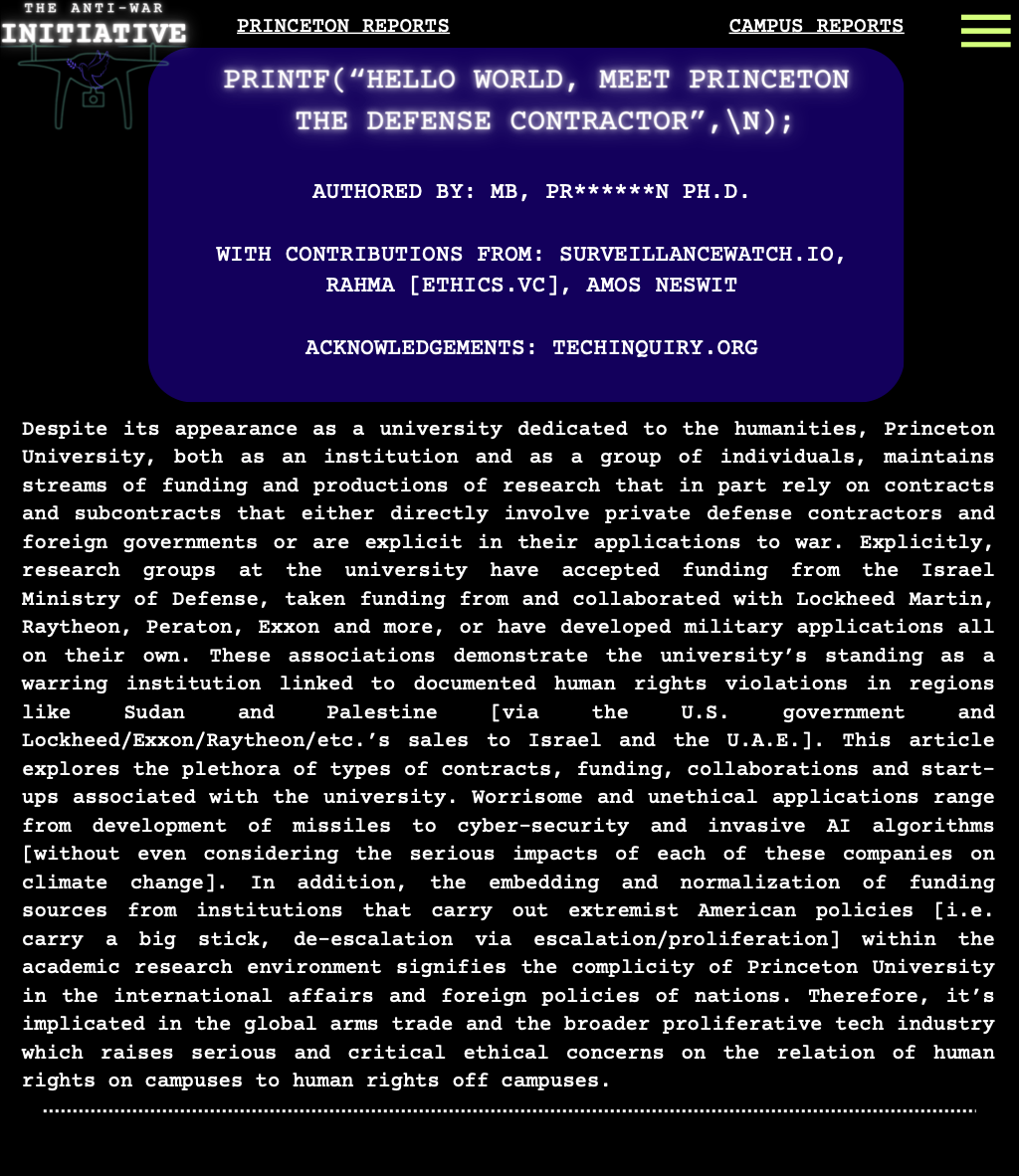[This report details Princeton University’s imbrication in U.S. wars, particularly in Palestine and the Sudan. The report is originally posted on antiwar.io and was featured by the Midddle East Eye.]
Despite its appearance as a university dedicated to the humanities, Princeton University, both as an institution and as a group of individuals, maintains streams of funding and productions of research that in part rely on contracts and subcontracts that either directly involve private defense contractors and foreign governments or are explicit in their applications to war. Explicitly, research groups at the university have accepted funding from the Israel Ministry of Defense, taken funding from and collaborated with Lockheed Martin, Raytheon, Peraton, Exxon and more, or have developed military applications all on their own. These funding relations are elucidated via the Federal Procurement Data System along with usaspending.gov, review of A-133 financial audits and examination of the funding of published scientific studies. These associations demonstrate the university’s standing as a warring institution linked to documented human rights violations in regions like Sudan and Palestine [via the U.S. government and Lockheed/Exxon/Raytheon/etc.’s sales to Israel and the U.A.E.]. Worrisome and unethical applications range from development of missiles to cyber-security and invasive AI algorithms [without even considering the serious impacts of each of these companies on climate change]. In addition, the embedding and normalization of funding sources from institutions that carry out extremist American policies [i.e. carry a big stick, de-escalation via escalation/proliferation] within the academic research environment signifies the complicity of Princeton University in the international affairs and foreign policies of nations. Therefore, it’s implicated in the global arms trade and the broader proliferative tech industry which raises serious and critical ethical concerns on the relation of human rights on campuses to human rights off campuses.

